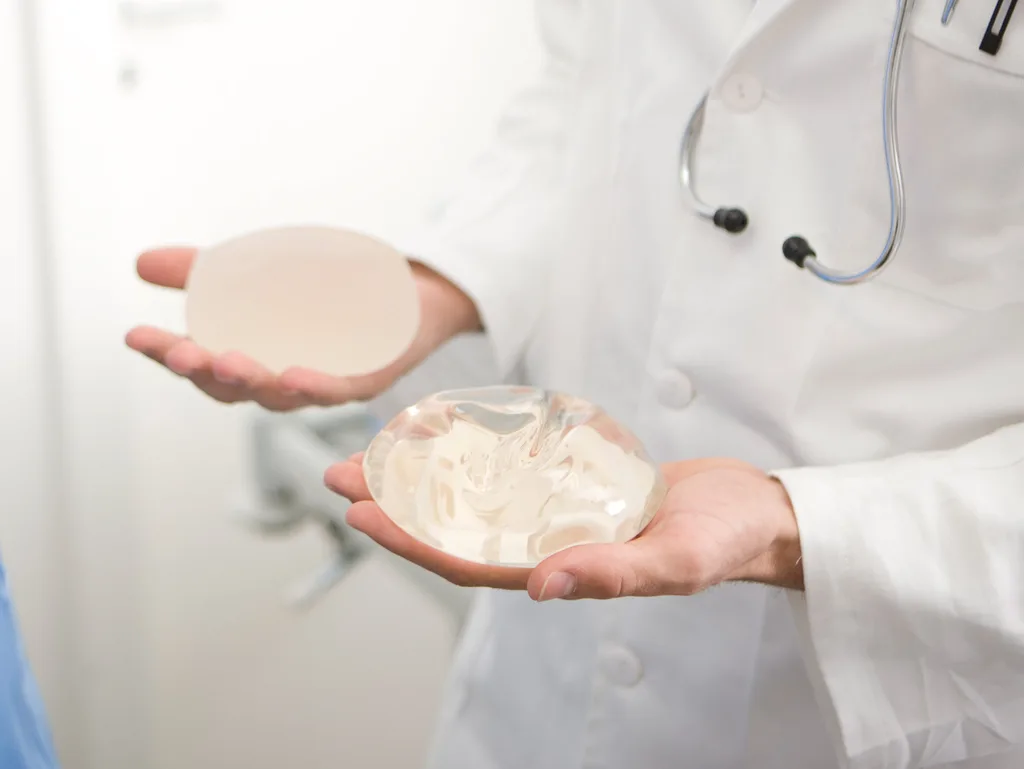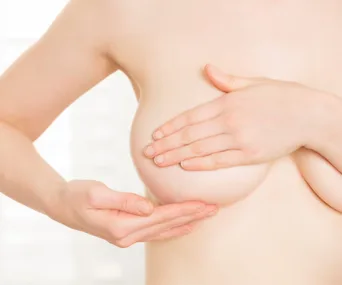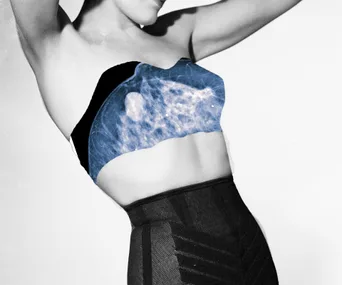A very rare form of cancer, first linked with breast implants in 2011, has now taken the lives of nine women, the Food and Drug Administration has revealed.
As of February 1, the FDA could confirm a total of 359 cases of the disease, which despite potential assumptions, was not breast cancer, but rather a rare type of non-Hodgkin’s lymphoma called anaplastic large cell lymphoma (ALCL).
The cancer, which is treatable and rarely fatal if found in a timely manner, usually grows in the capsule of the scar tissue surrounding an implant.
“All of the information to date suggests that women with breast implants have a very low but increased risk of developing ALCL compared to women who do not have breast implants,” the organisation said in a statement.

A textured (left) and smooth implant (right).
Of the 359 cases, 203 had textured implants, which were found to present a larger risk the 28 who had one with smooth surfaces.
Content of the implants, however, showed very little discrepancy: 186 were filled with silicone gel, and 126 saline.
While awareness around this link needs to increase for the FDA to attain a more accurate incidence rate, those with implants should be tuned into the symptoms of lumps, pain and swelling.
“Most cases of breast implant-associated ALCL are treated by removal of the implant and the capsule surrounding the implant and some cases have been treated by chemotherapy and radiation,” the statement said.
In December, Australia’s Therapeutic Goods Administration (TGA) reported 46 confirmed cases of breast implant-associated ALCL, including three deaths.
We’d understand if readers with implants might feel a tad disconcerted by this new reporting, but rest assured, the FDA says that routine care and diligence are the only precautions you need to take.
“There is no need to change your routine medical care and follow-up,” the organisation says.
“Educate yourself about breast implants before agreeing to surgery… make sure to talk to your health care provider about the benefits and risks of textured-surface vs. smooth-surfaced implants.
“Get routine mammography screening and ask for a technologist specifically trained in performing mammograms on patients with breast implants.”
If you wish to find out more, book in with your trusted GP today.



